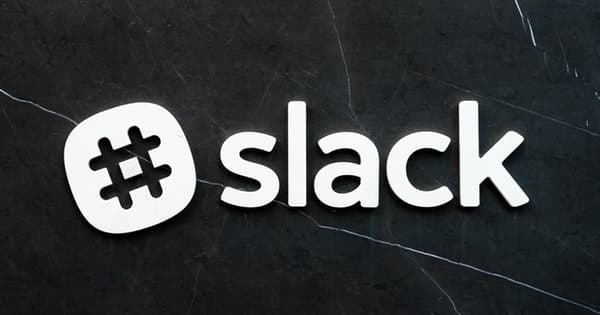Have you seen my 2018 predictions?
It’s always fun to throw some spaghetti at the wall of a New Year to see what may stick, but I always seem to forget a few predictions in my holiday haze. As the haze subsides, new guesses come to light, and I thought I’d introduce a new prediction for this year:
Amazon will acquire Slack.
A little nutso thinking an e-commerce giant might buy an enterprise messaging app? Maybe, but hear me out. Here’s why I think Amazon will — and should — make this move and gobble up the company, currently valued at $5.1 billion.
- Microsoft buying LinkedIn got everyone’s attention. A $26.2 billion price tag will do that. The deal proved that profits were in people, not postings. Combine that with Amazon’s core competency that data equals dollars, and Amazon going after this space makes more and more sense. Amazon has data, but not much of it is professional in nature. Buying Slack would change that.
- Bezos’ ego. Microsoft and Amazon inhabit the same city. Don’t think for one second that Bezos isn’t paying attention to what Satya and company are doing. And don’t think for a minute that Bezos is paranoid about losing ground to his neighbor, let alone a major tech player. Amazon’s CEO is me-too on steroids when it comes to replicating Microsoft’s move to get into the enterprise networking and data space.
- A moat for AWS. Amazon Web Services is hugely popular and profitable, but it’s getting hit from all directions. Google and Microsoft are at the door. Buying Slack would be a solid move to help Amazon retain its foothold in the cloud and beat back the competition. Amazon continues to make waves in commerce, but don’t underestimate the importance of AWS.
- Ads. Google AdWords and Facebook get all the publicity when it comes to Internet advertising. The attention is well-deserved, as the two arguably oversee a duopoly in today’s environment. Amazon, however, is a growing threat to take market share, and I wouldn’t be surprised if a few years from now we’re talking about all three as serious players in web advertising. In this scenario, Slack becomes a distribution play for ads. Similar to Facebook buying Instagram or Google buying YouTube, eyeballs equals revenue. As of September 2017, Slack enjoys a daily active user base of 6 million and growing. That’s six million consumers using the service daily who could be buying stuff on Amazon.
- Boost Amazon profits. Similar to the advertising play and getting more eyeballs on Amazon products and services of others, imagine all those Slack users connecting to their Amazon accounts. You’re at work, messaging coworkers, and you suddenly realize you need paper towels and lightbulbs. Unfortunately, you can’t get to the store, because you have to pick up little Johnny at soccer practice. Never fear, just send a message via Slack to Amazon saying you need those items and, voila, the papers towels and lightbulbs are waiting for you at home.
- Sell into businesses. Not my lane, but I’m not sure companies default to Amazon when they need paper, toner, and printing cartridges. However, I am sure Amazon would like to take a big bite out of Staples, Office Depot, and others. Integration into Slack would help fulfill that mission. Amazon could target and “office manager” with deals on such items and make buying them Amazon-easy.
- Deep enough pockets. At a valuation of over $5 billion, there are very few companies who could buy the company and make it a strategic move. By process of elimination, Amazon is one of the few companies that could make a play. Most of the other big guys already have an enterprise messaging play, so they wouldn’t be motivated to make a deal.
- Alexa. The popular voice assistant is ripe to be an enterprise tool, and Slack would help make that happen. Wake up in the morning, “Alexa, read new messages on Slack,” or “Alexa, message Barbara from work to make sure the revenue numbers are on my desk by noon.” You get the idea. Everything could sync nicely with your Slack account, and it also plays into the buying-more-stuff strategy.
With Microsoft, Facebook, and Google diving headfirst into the workforce space in 2017, would it really be shocking to see Amazon make a splash in 2018? Methinks not.
